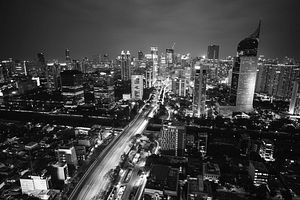From the moment that news broke about Indonesia’s decision to move its capital from Jakarta to East Kalimantan, on the island of Borneo, the hot takes sizzled. The BBC piece that broke the story internationally mentioned another investigation they had reported about Jakarta sinking due to water overuse and rising sea levels connected to climate change. Immediately, less informed journalists and pundits around the world connected the two facts, conflating the decision to move the capital as a direct response to climate change. Some even assumed this meant, bizarrely, that all 10 million of Jakarta’s residents would be relocated to another island.
The reality is both simpler and more complicated.
The capital – encompassing the functions of the central government – is all that will be moved under the plan. The vast majority of Jakarta’s residents will stay exactly where they are. The city will have to deal with its own challenges regardless of whether it hosts the capital or not. Jakarta has plans to address sea level rise, while simultaneously embarking on a massive rail construction boom to reduce congestion and pollution. For the most part, Jakarta will remain Jakarta.
While the move is accompanied by significant environmental concerns for Kalimantan, the decision to shift the capital away from Jakarta is more a reflection of the mistakes of Indonesia’s post-independence Java and Javanese-centric development. What makes this different, however, is how the yet unnamed capital will be the ultimate legacy of the country’s first outsider president – Joko “Jokowi” Widodo – one who has made development and infrastructure the focus of his administration.

































